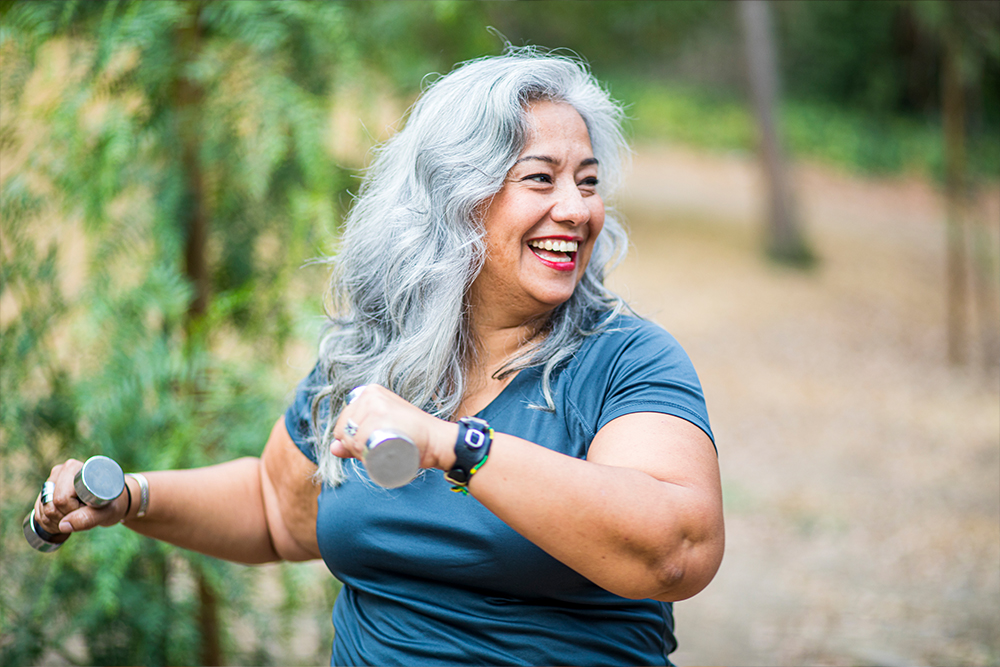How to Maintain a Healthy Weight for Seniors

Taking care of your body means more than just physical exercise. It also means maintaining a healthy weight appropriate for your body size and age. This is a crucial aspect of your overall wellness, as it can help prevent various health risks such as heart disease, diabetes, breathing problems, and even certain cancers, according to the National Institutes of Health.
Being overweight can be due to extra muscle, bone, fat, or water, but “obesity” specifically refers to having a high amount of fat. To determine if your weight is ideal for your age, you can check your body mass index (BMI). This screening method is a simple and affordable way to calculate whether you are underweight, healthy, or overweight. While BMI does not measure fat directly, it is related to direct correlations between body fat, metabolism, and illness.
For adults, BMI is interpreted using standard weight categories for men and women of all body types and ages. A healthy weight for adults is between 18.5 to 24.9, while being below that is considered underweight, and above that is considered overweight. However, for seniors, a BMI between 25 to 27 is best, as having more muscle and bone weight can help prevent conditions such as osteoporosis.
It’s important to note that many factors contribute to your weight, including genetics, metabolism, family history, and environment. But if your current BMI is not within the recommended range, don’t worry! You can always get back on track by following a proper diet, engaging in physical exercise, and maintaining discipline.
To help maintain a healthy weight, seniors should focus on eating the right foods. Here are some tips from the National Council on Aging:
- Know your nutritional needs: As we age, our bodies undergo various changes that can affect our nutritional needs. For example, our metabolism may slow down, our bones may become weaker, and our bodies may become less efficient at absorbing certain nutrients. It’s essential to understand these changes and adjust our diets accordingly to prevent health problems. Look for foods low in sugar, sodium, and saturated fats, and try to get enough protein, vitamins, and minerals that your body needs. Consult a healthcare professional or a nutritionist to help you determine your specific nutritional needs.
- Drink plenty of water: Water is essential for good health, and it’s even more critical as we age. Our bodies are made up of around 60% water, and it plays a crucial role in various bodily functions, such as regulating body temperature, aiding digestion, and transporting nutrients. However, as we age, our sense of thirst may become less acute, making it easy to become dehydrated. It’s important to drink plenty of liquids throughout the day, such as water, low-fat or fat-free milk, and 100% juice.
- Choose protein-rich foods: Protein is essential for maintaining and repairing muscles, bones, and other body tissues. As we age, our bodies may lose muscle mass, leading to injuries and other health problems. Eating protein-rich foods can help maintain muscle mass and promote good health. Look for sources of protein that are easy to digest, such as seafood, dairy or soy alternatives, beans, peas, and lentils, instead of red meat.
- Eat plenty of fruits and vegetables: Fruits and vegetables are packed with essential vitamins, minerals, and fiber to help keep our bodies healthy. Eating various fruits and vegetables can help reduce the risk of developing chronic diseases such as heart disease, stroke, and certain cancers. Aim for at least five servings of fruits and vegetables per day, and try to include a variety of colors and types to get the most benefits.
- Prioritize nutrients over taste: As we age, our sense of taste and smell may change, making it easy to rely on highly processed or overly sweetened foods. However, these foods often lack essential nutrients that our bodies need to function correctly. Instead, choose brightly colored foods, which are typically rich in essential minerals and fiber. Eating a lot of fiber can help with mineral absorption and digestion, making it easier for your body to get the nutrients it needs.
Don’t Forget Your Daily Physical Activities
Nutrition is important, but don’t forget to keep moving for a healthy weight and a sound mind. You need at least 30 minutes of physical activity daily, but it doesn’t have to be intense. If you prefer less strenuous exercise, here are some examples of light activities:
- Strolling in nearby parks
- Playing with your pet
- Light house cleaning
- Gardening
- Tai Chi
- Yoga
- Moderate activities like biking and hiking can raise your heart rate, strengthen your cardiovascular system, and prevent heart and lung-related conditions. Try activities like:
- Sprints around the block
- Playing tennis
- Hiking on a nature trail
- Dance aerobics
If you’re up for it, vigorous activities like swimming and aerobics can give the same results as moderate activities in less time. Strengthen your muscles and improve your balance with activities such as:
- Lifting weights or kettlebells
- Stair climbing
- Rowing (on a machine or in a kayak or canoe)
- Elliptical machines
Always ask your doctor before beginning a new exercise regimen, especially if you choose high-intensity workout routines. Remember to wear the right clothes and choose activities that fit your lifestyle and preferences. Get your friends and family to join in for even more fun!
Making Better Choices is The Only Sustainable Route
Maintaining a healthy weight takes effort and discipline, but there are no shortcuts. While health drinks and supplements may seem like an easy solution, they can contain unnecessary sugar and even be detrimental to the effects of any medications you may be taking. If you’re considering adding specialized weight loss products to your diet, talk to your doctor first to ensure they’re safe for you.
Remember, achieving a healthy weight can take time, especially if you’re outside of the recommended BMI range. Don’t get overwhelmed by the mountain of decisions you need to make. Be patient with yourself and make small, positive choices every day. These choices will add up and lead to better results over time. With dedication and perseverance, you can achieve a healthier weight and enjoy all the benefits that come with it.
We at the Mooring at The Lewes encourage you to be as healthy as can be. By providing you with fantastic amenities and tailored services, living after retirement can be the best days of your life. Our LivWell Program, recognized by LeadingAge New Jersey, aims to provide you with experiences that support a high quality of life, personal choice, lifelong development, and an optimal sense of well-being. Contact us at 1-302-644-6370.




